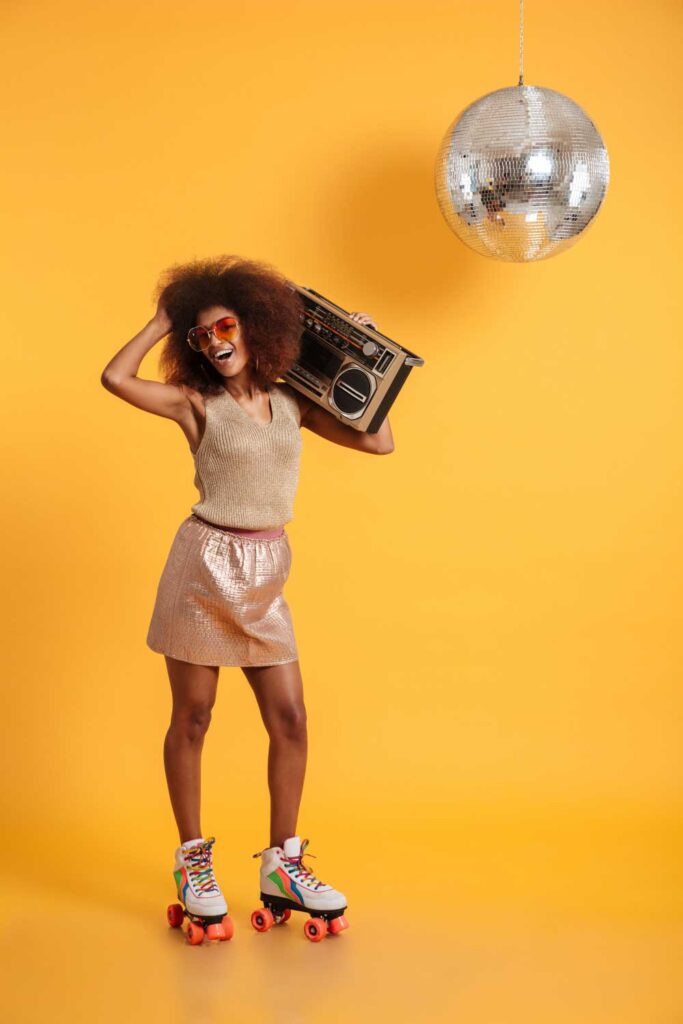
What is Social Media Nostalgising?
It is the phenomenon of posting and engaging with nostalgic content online.
This trend involves sharing memories from past decades, recreating old styles, and celebrating cultural milestones that evoke a sense of nostalgia.
From retro fashion trends to vintage tech, users are flooding social media with content that harks back to the ‘70s, ’80s, ’90s, and early 2000s.
The Power of Nostalgia in Marketing
Nostalgia marketing leverages these sentimental connections to create compelling campaigns that resonate deeply with audiences. Here’s why it works:
- Emotional Connection: Nostalgia triggers positive memories and emotions, making consumers more receptive to messages. It creates a strong emotional bond with the brand.
- Engagement: Nostalgic content often prompts higher engagement rates. People love to share and comment on posts that remind them of their past, increasing interaction on social media platforms.
- Broad Appeal: Nostalgia transcends generations. While Millennials might reminisce about their childhood, Gen Z might be fascinated by the trends they never experienced. This broad appeal makes nostalgia a versatile tool.
- Trust and Loyalty: Brands that successfully tap into nostalgia can build trust and loyalty. Consumers feel understood and appreciated when their fond memories are acknowledged.
Examples of Nostalgia Marketing
Several brands have successfully used nostalgia in their marketing strategies:
Nike – By re-releasing classic sneakers and using retro-themed advertisements, Nike has continually tapped into the nostalgia of its long-time fans.
Netflix – Shows like “Stranger Things” have capitalized on ’80s nostalgia, not just through storytelling but also through marketing campaigns that evoke the era’s aesthetics.
Coca-Cola – The “Share a Coke” campaign brought back names on bottles, reminiscent of personalizing products which were popular in the past, creating a sense of connection and nostalgia.
Why is the Y2K Era Especially Popular?
The early 2000s, or the Y2K era, is a significant focus of current nostalgia trends.
This period is characterized by distinctive fashion, emerging technology, and pop culture phenomena that resonate strongly with today’s young adults, who were children or teenagers at the time.
The quirks and unique style of Y2K offer a rich vein of content for nostalgising.
Of course it will depend on who you are targeting. Baby Boomers, for example, are especially fond of nostalgia from the 50’s, 60’s and early 70’s.
How Brands Can Leverage Nostalgia on Social Media
- Authenticity: Ensure that the nostalgic elements used in campaigns are authentic and resonate with the target audience. Forced nostalgia can feel disingenuous.
- User-Generated Content: Encourage followers to share their own nostalgic moments. This not only increases engagement but also provides a wealth of authentic content.
- Multimedia Approach: Use a mix of photos, videos, and even music from the era to create a more immersive nostalgic experience.
- Limited Editions: Launch limited edition products or packaging that hark back to earlier designs or popular items from the past.
Nostalgia is more than a fleeting trend; it’s a powerful tool in the marketer’s arsenal. By understanding and tapping into the emotional pull of the past, brands can create more meaningful connections with their audiences.
Pro Tip: Don’t think of nostalgia as just a trip down memory lane—you’ve got to use it strategically to create profound brand loyalty and increased engagement.
Whether you’re reminiscing about the Y2K era or earlier decades, the key is to evoke those cherished memories in a way that feels authentic and connects deeply with your audience.
